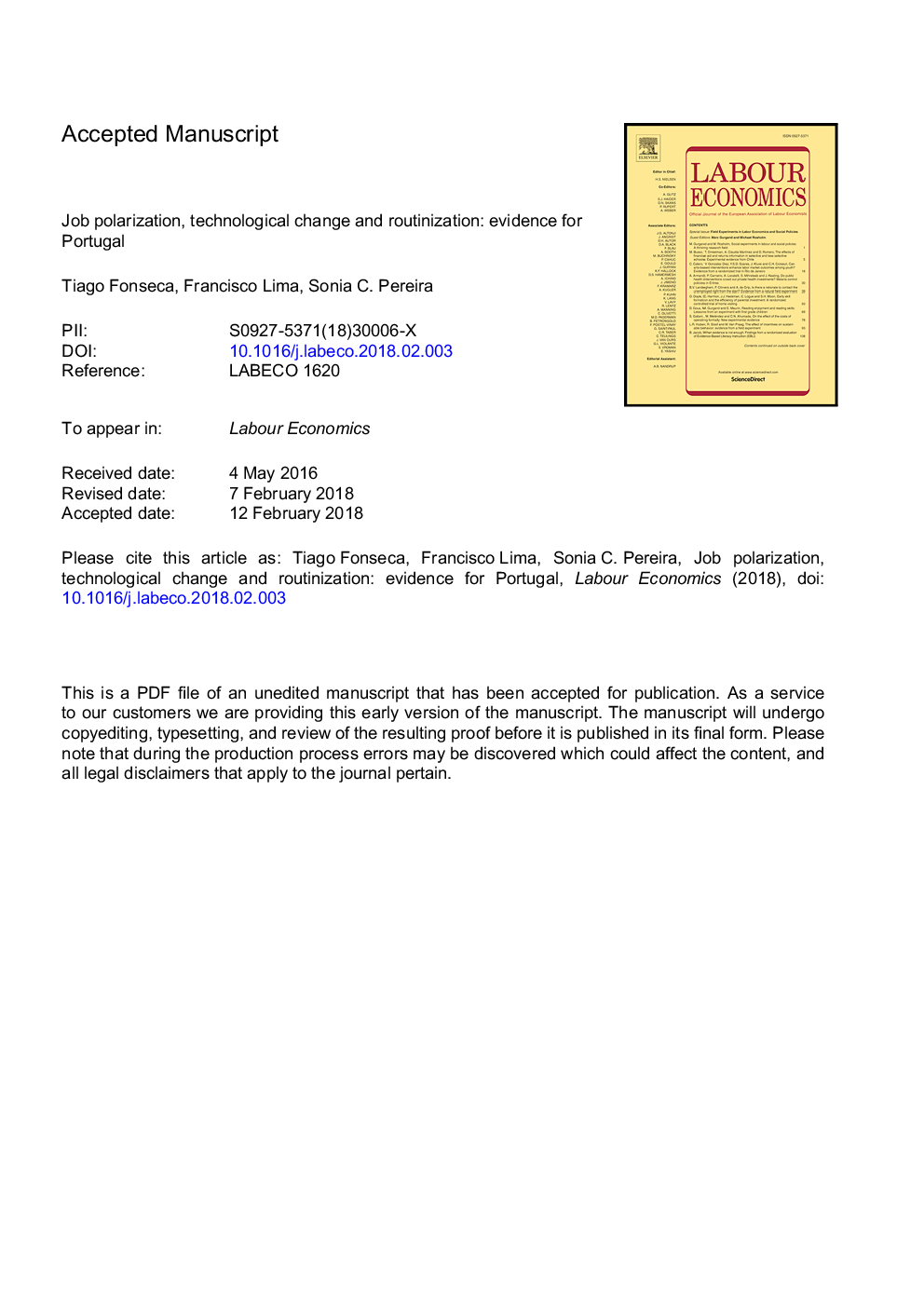| Article ID | Journal | Published Year | Pages | File Type |
|---|---|---|---|---|
| 7371313 | Labour Economics | 2018 | 54 Pages |
Abstract
This paper studies labor market polarization in Portugal, a country with slow capital accumulation and a low share of highly educated workers. We use firm census data for 1986-2007 and uncover polarization in employment and wages in the second half of this period. This mostly appears to be due to technological change. Our results show a sharp increase of both employment and wage premium for abstract tasks relative to routine tasks. In contrast to the existing literature, we separate between routine manual tasks and routine cognitive tasks. We uncover a sharp decline in routine manual employment but the decline in routine cognitive employment is modest and coupled with an increased wage premium that does not appear to be due to worker selection. This latter result is mainly explained by the large expansion of the service sector which employs many workers in routine cognitive-intensive jobs and the likely slower computer capital adoption resulting from the relatively low levels of human capital, by international standards.
Related Topics
Social Sciences and Humanities
Economics, Econometrics and Finance
Economics and Econometrics
Authors
Tiago Fonseca, Francisco Lima, Sonia C. Pereira,
